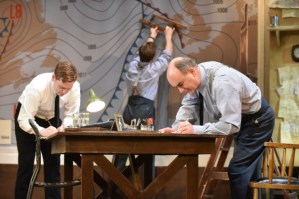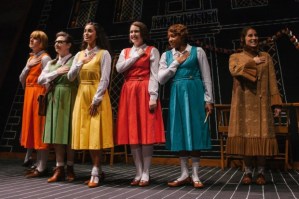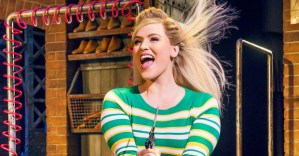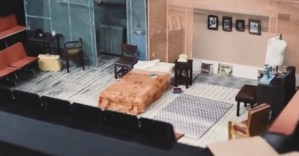Review: Alkaline (Park Theatre)
Stephanie Martin’s living room drama is directed by Sarah Meadows
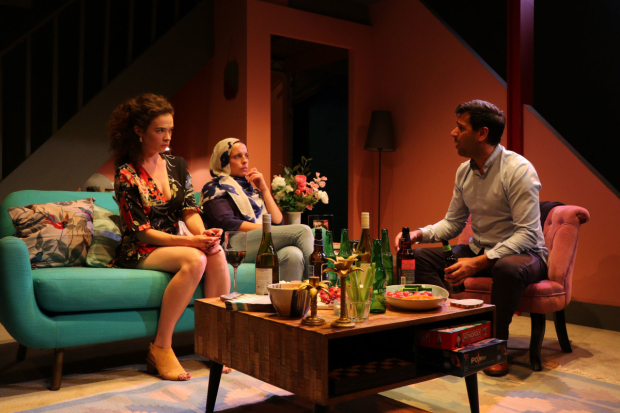
© Matthew Foster
Here's one for theatre twitchers: a rare sighting, indeed. The lesser-spotted living room drama – and in 2018. It's not been seen on these shores for years. Look at the plumage on those made.com sofas. See how it takes flight with a bit too much booze. Observe the way it leaves elaborate crudités untouched, save for the occasional peck at a Dorito. And you thought the old bird was extinct.
The irony of Stephanie Martin's soirée-play is that it trots out the most trad sort of drama to ask whether traditions aren't falling away. Trouble is, it never turns its gaze on itself, nor finds a way to break out of its form.
Hostess Sophie (EJ Martin) has invited her oldest friend Sarah, soon to be her bridesmaid, and Sarah's new boyfriend Ali over for drinks – the first time since Sarah converted to Islam. She turns up in a headscarf and drinks only tea, a far cry from the shambling party animal of old, but for the first time in her life, Sarah's settled in herself. Sophie, less so.
Beneath her liberal millennial exterior lies a stubborn conservative streak. She's almost playing at adult: doing up the house her parents bought her, throwing the sort of party they might have done, sticking with her unhappy university boyfriend (Alan Mahon) for the sake of getting married. Everything's traditional, yet superficial – and Claire Cartwright's Sarah, finally true to herself after years of disarray, sees through it.
It sets up an awkward comedy of manners centred on multiculturalism. Sophie's tongue-tied request that Sarah forgo her headscarf for bridesmaid unity is the first in a series of social faux pas. Having read up on Islam ("Did we do this at school?") she's needlessly concerned for a friend she no longer knows. The distance that's sprung up between them is a symbol of a deeper social divide.
Really, Alkaline's a play about social cocoons. Throughout, Martin catches the unease that tiptoes around otherness that's sprung from ignorance. Sophie's innocuous questions to Nitin Kundra's laid-back Ali – Do you have a big family? Where are you from? – are offensive because each is based on assumption. She mistakes the term 'mackem' (Geordie slang for a Sunderlander) for Arabic: foreign because it's unfamiliar to her. Sophie's privilege reveals a partial, and prejudiced, worldview – blindspots that she simply can't see.
For all its astute social commentary and well-observed gaffes, Martin's script does the same. If you're going to go trad, everything has to seem seamless and too often here, you clock the gears grinding – every time someone excuses themselves so a couple of characters can chat on their own; every time idle small talk lets the drama tread water. By the time an uninvited guest rocks up – Ali's first wife tracks him down via a location app – it stretches credibility too far. Sarah Meadows' production is light on its feet, and Georgia de Grey's design smartly suggests a whole house in a studio theatre, but an abrupt, cop-out ending suggests a situation – and a theatrical form – with nowhere to go.


